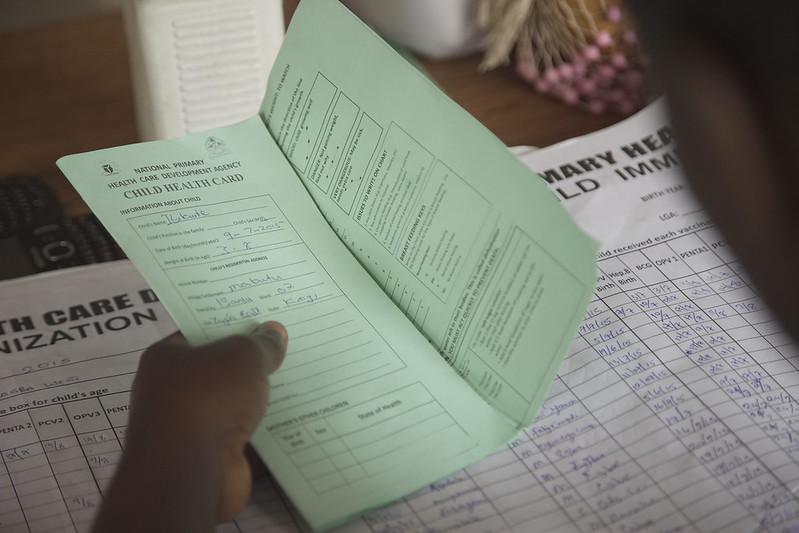Unaffordable Medical Care in Nigeria
 The cost of medical care in Nigeria is rising due to the ongoing economic downturn and a decline in living standards. While the average Nigerian cares about their health, their ability to access affordable medical care limits their options for proper medical attention.
The cost of medical care in Nigeria is rising due to the ongoing economic downturn and a decline in living standards. While the average Nigerian cares about their health, their ability to access affordable medical care limits their options for proper medical attention.
The Nigerian Health Sector in Numbers
The Nigerian government’s investment in health care is minimal compared to the sector’s needs. From 2007 to 2020, Nigeria allocated an average of only 3% of its GDP to health care. As a result, most Nigerians must pay for medical care out-of-pocket, receiving little to no government support to make health care affordable.
An average Nigerian household spends up to 6% of its income on health care, with estimates even higher in rural areas. Most households, falling within the lower-income range, lack insurance coverage. This situation often forces many to self-medicate or delay seeking medical care until their condition worsens, potentially leading to death or severe financial strain due to medical complications. This underscores the severity of unaffordable medical care in Nigeria. More than 50% of Nigerian households risk falling into dire financial positions after a catastrophic health event.
The Reality of The Nigerian Health Sector
The Borgen Project spoke with a source, a medical doctor working at a state hospital in Ondo State, Nigeria, who chose to remain anonymous due to the sensitive nature of their work and their position. The source noted that “it only costs N1,000 to open a folder and meet with a doctor for consultation.” They added that “even though most people are aware of their medical needs and close to 50% of people come in early enough for medical attention, the problem lies with when further investigation is required or drugs are prescribed as inflation makes them unaffordable.”
Being a state hospital does not reduce the cost of medical investigations or medications; affordability stops at the consultation fee. The source stated “Doctors try their best to attend to patients who cannot afford medical care by treating them blindly and it helps if the clinical symptoms are clear. Other than that, there is little doctors can do to help.”
Challenges and Cost of Medication
Civil servants benefit from health insurance that covers free medication after consulting a doctor. However, they often encounter issues as many prescribed medications are unavailable for dispensing. Consequently, many must purchase their medication elsewhere, paying out of pocket without any expectation of reimbursement.
This indicates that unaffordable medical care in Nigeria is widespread, extending beyond access to affordable hospitals to include affordable medications. Even those with health insurance must pay the full price for medications, leaving them no better off than uninsured individuals who cannot afford medications.
In both public and private hospitals in Nigeria, advance payment is mandatory before any consultation or medical care. For instance, at Lagos University Teaching Hospital (LUTH) in the metropolitan city of Lagos, upfront payments range from N15,000 to N50,000 in the children’s ward and at least N100,000 in the ICU. Additionally, tests, which often number around three per case, cost between N1,500 and N20,000 each.
National Efforts to Mitigate Medical Care Costs
Various NGOs have developed programs to address unaffordable medical care in Nigeria. One notable example is the Nigerian Health Care Foundation (NHF), which aims to provide support and conduct medical services throughout the country.
NHF runs several programs to reduce unaffordable medical care in Nigeria. A key initiative is the Medical Mission Program, which aims to improve the health and social welfare of Nigerians. The foundation conducts two-week medical missions nationwide, serving an average of 400 patients daily, 95% of whom come from remote areas with limited or costly access to medical care. Additionally, NHF operates the Nigeria Smiles Campaign year-round, collecting medical, hygiene and school supplies to distribute to patients at temporary clinics across the country.
Local NGO Initiatives
The Centre for the Right to Health (CRH) is an NGO committed to creating a Nigeria where quality health care is available, affordable and accessible to every citizen. During World Immunization Week and World Malaria Day in 2024, CRH visited rural communities to test and educate residents about combating malaria and other diseases. This initiative is part of the organization’s effort to reduce unaffordable medical care in Nigeria and ensure equitable health access for all.
International Contributions to Health Care
International NGOs such as Médecins Sans Frontières (MSF), also known as Doctors Without Borders, have played a significant role in reducing unaffordable medical care in Nigeria. Since 1971, MSF has provided emergency medical aid and addressed major health crises in the country. It operates hospitals and clinics offering free health care services, especially in conflict-affected areas where many cannot afford proper medical care.
MSF supports the Noma Children’s Hospital in Sokoto, Nigeria, targeting noma—a disease primarily affecting children under 6 with weakened immune systems due to malnutrition and limited access to medical care. Those afflicted typically require acute medical care and reconstructive surgery. Besides surgery, MSF offers physiotherapy, nutritional and mental health support and conducts outreach to enhance early detection. In 2021, MSF performed 105 surgical interventions for individuals who otherwise could not afford surgery.
Looking Forward
The efforts of organizations like NHF and CRH, supported by international groups like Médecins Sans Frontières, are crucial in bridging the gap in health equity in Nigeria. These initiatives promise not only immediate relief but also long-term improvements in health care access and affordability for all Nigerians.
– Olusegun Odejobi
Olusegun is based in Norwich, UK and focuses on Global Health for The Borgen Project.
Photo: Flickr
